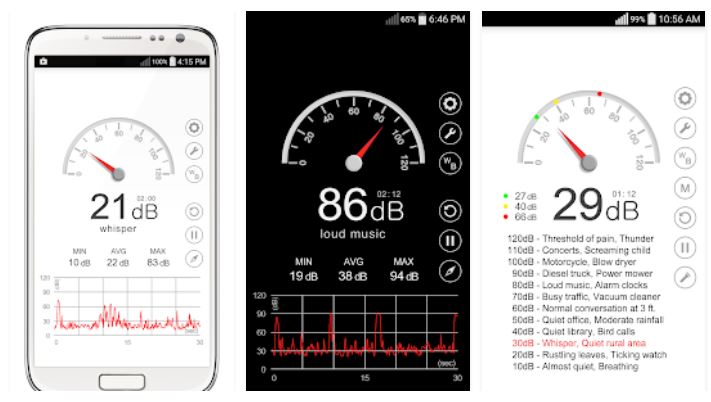|
No title
Problem
Fridge / Freezer / Ice Maker Making Noise (Refrigerator
Noisy, Sound, Beeping, Chiming, Bubbling, Gurgling, Buzzing, Humming, Cracking,
Popping, Grinding, Vibrating, Fan, Compressor, Water Valve, Motor)
Solution
- Please ask customer to describe the noise/sound.
- Try visual support to listen to the noise,
if it's not making noise during the phone conversation, ask customer to
record the sound and email the attachment for review.
- Below are the different noises that a
refrigerator can produce and the causes:
1. Beeping, Chiming, or Door
Alarm Noise
2. Bubbling or Gurgling Noise
3. Buzzing or Humming Noise
4. Cracking and Popping Noise
5. Grinding Noise
6. Rattling Noise
1) Beeping, Chiming, or Door Alarm Noise
- First, we need to confirm if the beeping
sound is coming from the refrigerator or another nearby device.
- Rule out other sources of beeping nearby
(smoke alarm with low battery, microwave with finished cooking).
- Ask customer to press the buttons on the
display panel and listen for distinct sounds.
- Intentionally leave the door open and
wait for the door alarm to go off.
- Check for objects blocking the door from
closing properly.
- Verify the fridge and freezer temperature
isn't too warm (if the temperature rises rapidly, the unit will start beeping
to warn the customer).
- Ask customer to turn off the refrigerator
or disconnect its power at the circuit breaker for at least 1 hour to reset
the computer board.
- If the unit is beeping and no error code
is appearing on the display, then it could be a door switch issue, or the
temperature has risen too rapidly - Service
is required.
Warning:
If doors were recently removed and reinstalled, the installer might have forgotten
to reconnect the cables.
Note: If
the customer calls back reporting the same issue after following the above troubleshooting
steps, then Service
is required.
2) Bubbling or Gurgling Noise
- Bubbling or gurgling sounds are common
in fridges. These sounds are Normal.
- This happens when refrigerant gas flows
through the pipes inside your fridge.
- This occurs during the cooling or freezing
process.
- The bubbling noise is normal - No
service is required.
3) Buzzing or Humming Noise
- Usually, buzzing sounds come from the
back of the fridge.
- If the buzzing sound happens at once every
1 to 5 hours, then it could be the ice maker water valve, if the water line
is closed or not connected, and the ice maker is turned ON,
then it will make a loud buzzing sound when asking for water. Customer must
turn the ice maker OFF
when not using (Refer to the user manual).
- Buzzing or humming sounds could be coming
from the fan. Ask customer to open one of the doors, and if the noise stops,
then it�s one of the evaporator fans inside the fridge - Service
is required.
- If the noise doesn't stop when the door
is open, it means it's coming from the back of the fridge.
- If it sounds like it's coming from the
back of your fridge, please check if the water line is secured by fasteners
or tape, because if it's loose, then it will rub against the fridge body
and make unwanted noises.
- The clearance around the refrigerator
should be at least 2 inches.
This will allow for proper ventilation and will prevent the fridge from
making buzzing sounds. Ask customer to move the fridge forward approximately
2 inches away from the wall. If the noise goes away, that indicates the
fridge was coming into contact with another object.
- It's also possible that the water dispenser's
water pressure is too high. Ask customer to lower the water pressure by
turning down the water tap. If the sound continues after decreasing the
pressure, then Service
is required.
- It is normal for a fridge to buzz or hum
a little, but the decibel level should be between 32
and 47 decibels. If the decibel
level is higher than 47dB, there may be a possible issue. Customer can test
the decibel level using a decibel meter app (available on Android / Apple).

WARNING: If
the water line is not connect, DO
NOT hold down on the dispenser
lever. This will eventually ruin the water valve and could eventually prevent
the water dispenser and ice maker from working.
4) Cracking and
Popping Noise
- Refrigerator may produce cracking and
popping noise during its regular operations, which are normal.
- These sounds can be attributed to the
cabinet material expanding and contracting when the fridge enters Auto Defrost
mode, causing the interior refrigerator coils to heat up and prevent frost
buildup (occurs once every 48 hours).
- Rapid temperature fluctuations cause specific
components within the fridge to flex, generating the loud popping and cracking
sounds.
5) Grinding Noise
- If your fridge makes a noise that sounds
like a fan hitting something, it may be an issue with the fan.
- Ask customer to open one of the doors,
and if the noise stops, then it's one of the evaporator fans inside the
fridge - Service
is required.
6) Rattling Noise
- Loose hinge bolts or cover screws can
result to rattling sound. If the door was recently removed, the hinge bolts
or cover screws might be loose.
- Excess frost in the freezer can obstruct
fan operation, leading to rattling noise. Ask the customer to make sure
the doors are closing properly.
- If possible, ask the customer to clean
the gaskets, then unplug the unit, and leave the freezer door open to defrost
the freezer.
�����������������������������������������������������������������������������������������������������������������������������������������������������������������������������������������������������������������������������������������������������������������������������������������������������������������
|
